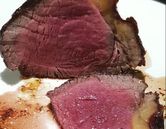Green tea extract only affects markers of oxidative status postprandially: lasting antioxidant effect of flavonoid-free diet.
Study that tried to test the effectiveness of the antioxidants in green tea. In short, green tea did nothing to promote health, and the study accidentally showed that eating a carnivore diet improves health across the board -
Study that tried to test the effectiveness of the antioxidants in green tea. In short, green tea did nothing to promote health, and the study accidentally showed that eating a carnivore diet improves health across the board -
Cholesterol – The Unsung Antioxidant
So, cholesterol when all is said and done, is not the culprit of heart disease, but rather, the antioxidant rushing to the scene of an accident to help with repairs.
High blood cholesterol levels may indicate that the body is merely in need of cholesterol to protect itself. Protect from what? Well, antioxidants protect from free radicals and the damage they cause. According to Wikipedia:
Free radicals play an important role in a number of biological processes. Some of these are necessary for life … but because of their reactivity, these same free radicals can participate in unwanted side reactions resulting in cell damage. Excessive amounts of these free radicals can lead to cell injury and death …
So, cholesterol when all is said and done, is not the culprit of heart disease, but rather, the antioxidant rushing to the scene of an accident to help with repairs.
High blood cholesterol levels may indicate that the body is merely in need of cholesterol to protect itself. Protect from what? Well, antioxidants protect from free radicals and the damage they cause. According to Wikipedia:
Free radicals play an important role in a number of biological processes. Some of these are necessary for life … but because of their reactivity, these same free radicals can participate in unwanted side reactions resulting in cell damage. Excessive amounts of these free radicals can lead to cell injury and death …
Uric acid provides an antioxidant defense in humans against oxidant- and radical-caused aging and cancer: a hypothesis.
Abstract
During primate evolution, a major factor in lengthening life-span and decreasing age-specific cancer rates may have been improved protective mechanisms against oxygen radicals. We propose that one of these protective systems is plasma uric acid, the level of which increased markedly during primate evolution as a consequence of a series of mutations. Uric acid is a powerful antioxidant and is a scavenger of singlet oxygen and radicals. We show that, at physiological concentrations, urate reduces the oxo-heme oxidant formed by peroxide reaction with hemoglobin, protects erythrocyte ghosts against lipid peroxidation, and protects erythrocytes from peroxidative damage leading to lysis. Urate is about as effective an antioxidant as ascorbate in these experiments. Urate is much more easily oxidized than deoxynucleosides by singlet oxygen and is destroyed by hydroxyl radicals at a comparable rate. The plasma urate levels in humans (about 300 microM) is considerably higher than the ascorbate level, making it one of the major antioxidants in humans. Previous work on urate reported in the literature supports our experiments and interpretations, although the findings were not discussed in a physiological context.
Abstract
During primate evolution, a major factor in lengthening life-span and decreasing age-specific cancer rates may have been improved protective mechanisms against oxygen radicals. We propose that one of these protective systems is plasma uric acid, the level of which increased markedly during primate evolution as a consequence of a series of mutations. Uric acid is a powerful antioxidant and is a scavenger of singlet oxygen and radicals. We show that, at physiological concentrations, urate reduces the oxo-heme oxidant formed by peroxide reaction with hemoglobin, protects erythrocyte ghosts against lipid peroxidation, and protects erythrocytes from peroxidative damage leading to lysis. Urate is about as effective an antioxidant as ascorbate in these experiments. Urate is much more easily oxidized than deoxynucleosides by singlet oxygen and is destroyed by hydroxyl radicals at a comparable rate. The plasma urate levels in humans (about 300 microM) is considerably higher than the ascorbate level, making it one of the major antioxidants in humans. Previous work on urate reported in the literature supports our experiments and interpretations, although the findings were not discussed in a physiological context.

